-
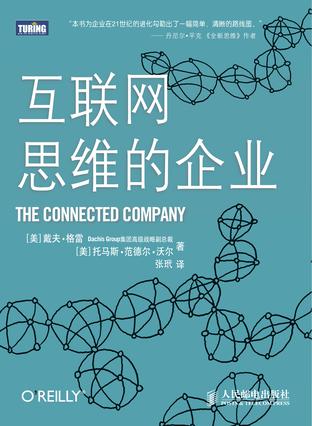
互联网思维的企业
本书指导企业跳出仅更新自家产品和服务的怪圈,在管理方式、组织结构和公司文化方面进行变革,建立具有互联网思维的企业。书中通过大量图示和示例阐述了互联式公司必需的基础元素(透明的互动和交流平台,推崇自治和应变的组织结构,实验和学习的企业文化),以及一套鼓励员工创新的新式管理和奖励体系。最后,讨论板可方便你在工作时间和同事探讨如何增加公司的互联程度。 -
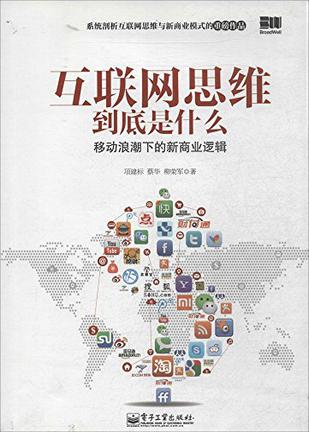
互联网思维到底是什么
在信息相对封闭和资源相对稀缺的工业时代,机器思维(工业思维)下的“成功学”与“科学管理”大行其道。然而一夜之间,底特律宣告破产,诺基亚被收购……一批批巨头轰然倒下,三维世界对二维世界正式下了战书。 从蒸汽机到互联网决不仅仅是一次技术的进步,更是一次商业的进化,是一场思维的革命。2014 年恰恰就是互联网思维的元年。 资深风险投资人、自媒体“B 座12 楼”的运营者——大象、蔡博士与飘泊一柳三人,基于丰富的行业案例与实战积累,首度在《互联网思维到底是什么——移动浪潮下的新商业逻辑》中提出:互联网思维是相对于工业化思维而言的,它创造了一个新的生态系统,开启了一个新的时代。这个时代是去中心、异质、多元和感性的。在互联网思维的指导下,扁平化的企业组织、强烈的情感诉求,以及自传播的媒体属性,让产品本身成为一个有机生命体。 互联网并不是我们习惯上认为的工业时代的延伸,它彻底解构了工业思维,颠覆了我们所熟悉的商业世界。 推荐与互联网、商业有关联的人群阅读本书。 -

微创新
好产品不一定要颠覆,微小改进就能让用户尖叫! 引爆创新领域的全新方法论 互联网时代行之有效的5大创新策略 创业者、产品经理必读的创新行动指南 《怪诞行为学》作者 丹•艾瑞里 《影响力》作者 罗伯特•西奥迪尼 全球50位最具影响力的商业思想家之一丹尼尔•平克 周鸿祎、黎万强、罗振宇、牛文文、张鹏 联袂重磅推荐 为什么iPod可以在众多mp3产品中脱颖而出? 为什么一款没有洗涤成分的洗衣液能让宝洁公司获利10亿美元? 为什么雀巢冰饮在冬季也成为消费者追捧的新宠? 成功的产品有规律可循吗?产品创新需要彻底颠覆和重新发现吗? 多年致力于创造力研究的创新领域专家德鲁•博迪和雅各布•戈登堡,通过对强生公司、通用、宝洁、SAP、飞利浦等全球顶尖公司的上百种畅销产品的分析发现,创新并非来自天马行空、惊世骇俗的发明,而多是通过在现有框架内进行微小改进,结果却非同凡响、创意无限。这就是“微创新”。 作者认为,看似百花齐放、花样百出的产品创新,实际上都可以总结为相同的创新模型。他们将这些方法归结为5大策略——减法策略、除法策略、乘法策略、任务统筹策略和属性依存策略。 从风靡一时的Walkman随身听、飞利浦DVD播放机,到风头正盛的Twitter,都遵循的是减法策略;从通用的热销分离式冰柜,到便携式笔记本电脑的热卖,都受惠于除法策略的奇思妙想;大到国家军备器械的普及、一款互联网产品的风靡,小到一把婴儿勺子、一款饮料的流行,其背后主导都是这5种创新模式。无论什么行业或产品,无论是创业者还是产品经理,只要学会这种创新性思维,你都能轻松打造出让市场惊艳、让客户尖叫的产品。 -
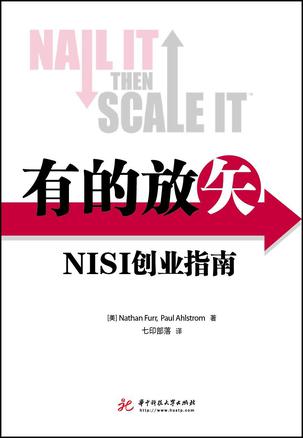
有的放矢
创业需要大笔资金吗?自信的人适合创业吗?好点子究竟来自哪里?《有的放矢:NISI创业指南》的两位作者拥有多年创业与投资经验,收集了大量的一手案例和资料,提出有的放矢创业流程,帮助创业者规避创业风险,提高创业成功率。 -
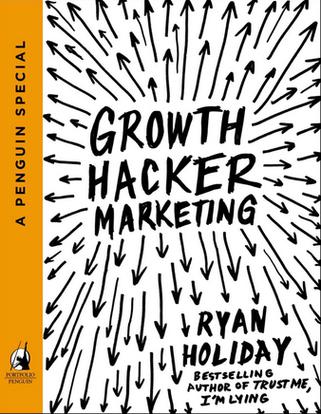
Growth Hacker Marketing
Dropbox, Facebook, AirBnb, Twitter. A new generation of multibillion dollar brands built without spending a dime on “traditional marketing.” No press releases, no PR firms, and no billboards in Times Square. It wasn’t luck that took them from tiny start-ups to millions of users and massive valuations. They have a new strategy, called Growth Hacking. And it works. In this e-special, bestselling author Ryan Holiday shows how the marketing game has changed forever. He explains the growth hacker mindset and provides a new set of rules—critical information whether you’re an aspiring marketer, an entrepreneur, or a Fortune 500 executive. "Growth hackers are the new VPs of marketing, and this book tells you how to make the transformation." —Andrew Chen, Silicon Valley entrepreneur, essayist and advisor "This book is a wake up call for every marketing exec in the business. And a tutorial for engineers, IT, founders and designers. Read it." —Porter Gale, Former VP of Marketing at Virgin America and author of Your Network is Your Net Worth “Holiday is part Machiavelli, part Ogilvy, and all results…this whiz kid is the secret weapon you’ve never heard of.” —Tim Ferriss, #1 bestselling author of The 4-Hour Workweek, investor in Twitter, Uber and TaskRabbit "Ryan captures the power of the growth hacker mindset and makes it accessible to marketers at companies of all types and sizes. If you don't see a boost in results after reading this book, something is wrong with your product.” —Sean Ellis, former growth hacker at Dropbox, and founder of Qualaroo "Finally, a crystallization and explanation of growth hacking in easy to understand terms—and better yet, real strategies and tactics for application." —Alex Korchinski, Director of Growth, Soma "Ryan's book will help every lean entrepreneur trying to grow their business and master the art of marketing and growth." —Patrick Vlaskovits, author of The Lean Entrepreneur -
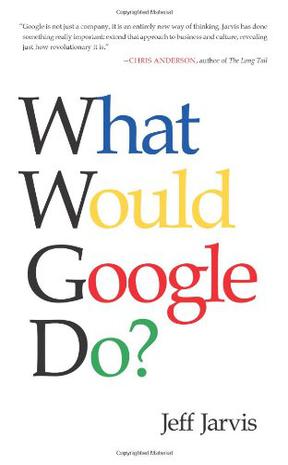
What Would Google Do?
A bold and vital book that asks and answers the most urgent question of today: What Would Google Do? In a book that's one part prophecy, one part thought experiment, one part manifesto, and one part survival manual, internet impresario and blogging pioneer Jeff Jarvis reverse-engineers Google—the fastest-growing company in history—to discover forty clear and straightforward rules to manage and live by. At the same time, he illuminates the new worldview of the internet generation: how it challenges and destroys, but also opens up vast new opportunities. His findings are counterintuitive, imaginative, practical, and above all visionary, giving readers a glimpse of how everyone and everything—from corporations to governments, nations to individuals—must evolve in the Google era. Along the way, he looks under the hood of a car designed by its drivers, ponders a worldwide university where the students design their curriculum, envisions an airline fueled by a social network, imagines the open-source restaurant, and examines a series of industries and institutions that will soon benefit from this book's central question. The result is an astonishing, mind-opening book that, in the end, is not about Google. It's about you.